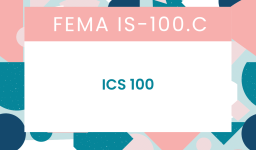The Joint Staff Non-Supervisory Equal Employment Opportunity (JS-US070) course is a vital training module designed to ensure that all members of the Joint Staff understand the principles of equal employment opportunity (EEO) and the importance of maintaining a workplace that is free from discrimination and harassment. The course serves several purposes:
- Education: To teach participants about harassment, its various forms, and the laws that prohibit such behaviors.
- Prevention: By raising awareness, the training aims to reduce incidents of harassment and discrimination within the Joint Staff.
- Empowerment: To equip staff with the knowledge and tools to act responsibly, report incidents, and support colleagues who might be victims.
The JS-US070 training is applicable to all civilian personnel within the Joint Staff (JS). This encompasses a diverse range of employees, from new hires to those who’ve served for several years.
Regardless of rank, department, or tenure, everyone is expected to uphold the principles discussed in this training. It’s an annual training, reminding staff consistently about the significance of EEO.
The course is designed to be concise yet comprehensive, covering all pertinent topics in a span of one hour. While the time might seem short, the content is packed with information, scenarios, and guidelines to ensure a thorough understanding.
It’s recommended that participants engage with the course material actively, take notes, and participate in any interactive sections or quizzes that might be present to get the most out of this training hour.
Joint Staff Non-Supervisory Equal Employment Opportunity Answers
| Question | Answer |
|---|---|
| How many calendar days does an individual have to contact an EEO Counselor to initiate the discrimination complaint process? | 45 |
| What Act does a Federal agency violate if agency authorities take, or threaten to take, retaliatory personnel action against any employee or applicant because of disclosure of information by that employee or applicant? | Whistleblower Protection Act |
| How can Joint Staff employees assist in increasing the participation rate of IWD and IWTD in our workforce? | All of the above |
| Which of the following is NOT a prohibited personnel practice? | Considering proper employment recommendations based on personal knowledge or records of job-related abilities or characteristics |
| True or False? A verbal reasonable accommodation starts the reasonable accommodation process. | True |
| Which of the following is an example of discrimination on the basis of reprisal? | An employee is denied a promotion solely because of their participation in the discrimination complaint process. |
| The Equal Pay Act of 1963 protects men and women who perform substantially equal work, which requires: | All of the above |
| True or False: EEO is special treatment in employment, promotion, training, and other personnel actions for a selected group to meet quotas. | False |
| Where can an employee file a request for reasonable accommodation? | Both answers are correct |
| An employee or applicant may only file an EEO complaint on the basis of Age Discrimination if: | He or she is 40 or older |
| Why is mediation advantageous? | Parties reach a mutually agreeable resolution. |
Overview of Harassment Awareness and Prevention
Harassment is defined as any unwelcome conduct based on race, color, religion, sex (including pregnancy), national origin, age (40 or older), disability, or genetic information. Harassment becomes unlawful when:
- Enduring the offensive conduct becomes a condition of continued employment; or
- The conduct is severe or pervasive enough to create a work environment that a reasonable person would consider intimidating, hostile, or abusive.
Types of Harassment
Understanding the different forms of harassment is crucial. By recognizing these behaviors, staff can better address and report incidents. Here’s a breakdown:
- Sexual Harassment: This includes unwanted sexual advances, requests for sexual favors, and other verbal or physical conduct of a sexual nature. It can be categorized further into:
- Quid Pro Quo: When employment decisions or treatment are based on submission to or rejection of unwelcome conduct, typically of a sexual nature.
- Hostile Work Environment: Occurs when someone’s behavior within a workplace creates an environment that is difficult or uncomfortable for another person.
- Racial, Ethnic, and Religious Harassment: This encompasses derogatory remarks, symbols, or behaviors directed towards an individual based on their race, ethnicity, or religious beliefs. It could manifest as jokes, slurs, stereotyping, or even physical threats.
- Bullying and Other Forms of Workplace Harassment: Bullying involves repeated inappropriate behavior, direct or indirect, whether verbal, physical, or otherwise, conducted by one or more persons against another or others. It can occur at hierarchical levels and can be psychological in nature. Other forms of workplace harassment might include:
- Age-based Harassment: Targeting someone based on their age.
- Disability Harassment: Harassment based on someone’s physical or mental disability.
- Retaliation: When an employer takes an adverse action against an employee who has filed a complaint about harassment or discrimination.
The training emphasizes that harassment in any form is not just a personal issue but a workplace concern that affects morale, productivity, and the overall environment. Everyone is responsible for ensuring the workplace is respectful and free from such behaviors.
Exam Preparation
- Definition and Types of Harassment: Ensure a comprehensive understanding of the categories and manifestations of harassment.
- EEO Laws and Guidelines: Familiarize with the Equal Employment Opportunity Commission (EEOC) regulations, DOD laws, and other executive orders and management directives.
- Discrimination Complaint Process: Understand the procedure and timeline, especially the importance of the 45-calendar day rule.
- Reasonable Accommodation Process: Know where and how to file a request and the implications.
- Reprisals and the Whistleblower Protection Act: Be aware of protections in place for employees and the prohibited personnel practices.
- Benefits of Mediation in Disputes: Recognize why mediation is advantageous in reaching mutually agreeable resolutions.
Strategies for Successful Exam Completion
- Active Participation: Engage fully in the training, taking notes, and asking questions if any.
- Review Materials: Before the exam, review any course materials, handouts, or notes taken.
- Practice with Sample Questions: Familiarize yourself with the format and type of questions that might be asked.
- Stay Calm: Read each question carefully, ensure you understand it fully, and then answer.
- Seek Clarification: If you’re unsure about any topic, review it again or seek clarification before the exam.
Sample Questions and Answers
- Question: How many calendar days does an individual have to contact an EEO Counselor to initiate the discrimination complaint process? Answer: 45
- Question: What Act protects federal employees or applicants from retaliation due to disclosure of information? Answer: Whistleblower Protection Act
- Question: Which of the following is NOT a prohibited personnel practice? Answer: Considering proper employment recommendations based on personal knowledge or records of job-related abilities or characteristics.
- Question: True or False? A verbal reasonable accommodation starts the reasonable accommodation process. Answer: True
- Question: Which of the following is an example of discrimination on the basis of reprisal? Answer: An employee is denied a promotion solely because of their participation in the discrimination complaint process.



